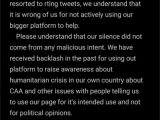‘I Was Bleeding and He Didn’t Stop’: Damning Report Exposes Culture of Abuse in Japanese Sports
July 22, 2020Hitting children with bats and bamboo kendo sticks, slapping them across the face, and holding their heads underwater to “simulate drowning” are just some of the shocking techniques reportedly deployed by Japanese coaches and sports officials on child athletes, according to a new report by Human Rights Watch (HRW).
The damning report, titled “I Was Hit So Many Times I Can’t Count,” featured detailed interviews and personal statements from more than 800 current and former child athletes who spoke up about prevailing physical, verbal, and even sexual abuse in the field.
“Participation in sport should provide children with the joy of play and with an opportunity for physical and mental development and growth. In Japan however, violence and abuse are too often a part of the child athlete’s experience,” the report reads. “As a result, sport has been a cause of pain, fear and distress for far too many Japanese children.”
The report comes as tens of thousands were expected to gather in Tokyo this week for the 2020 Summer Olympics, which have since been postponed because of the global coronavirus pandemic. It is the first postponement of the games in Olympic history.
HRW’s report notes that child abuse is prohibited in Japan, but “there are no laws that explicitly extend this prohibition to the world of sports.” A former child star from the Kyushu region, identified by the pseudonym Daiki A., shared his traumatic experience playing baseball as a pitcher in junior high, and spoke about the local culture of taibatsu, or corporal punishment, that plagues the Japanese youth sports scene.
“The coach told me I was not serious enough with the running [during practice] so we were all called to the coach and I was hit in the face in front of everyone. I was bleeding and he did not stop hitting me,” Daiki said. “I did say that my nose was bleeding but he did not stop.”
Another account, from a former water polo player, described being punched in the stomach, choked, and having his head held underwater.
“Athletes were dragged out from the pool by their cap strap, choking them. Another punishment is pushing kids underwater so that they couldn’t breathe,” he said. “It is like the military… At the time, I felt it was a regime of terror, not strategy. Ruled by fear.”
The shocking report is the latest in a series of revelations surrounding the sometimes-toxic culture of the modern hyper-competitive sports world. Last month, for instance, celebrated South Korean triathlete Choi Suk-hyeon took her own life after a string of abuses at the hands of her coaching staff.
China-trained figure skater Jessica Shuran Yu, who skated for Singapore in the 2017 world championships, this week revealed harrowing stories about abusive, “dehumanizing” training sessions to The Guardian, and urged for the International Olympic Committee (IOC) to do more to protect vulnerable young athletes.
Human Rights Watch, for its part, called for a ban on all forms of abuse by coaches.
“For too many years, the human rights of child athletes have been neglected, especially when it comes to their protection from violence and abuse,” the New York-based group concluded in their report.
“Child athlete abuse remains prevalent in Japan where there is a long tradition of physical punishment as a coaching tactic. With the one-year postponement of the Olympic and Paralympic games, the Japanese government and Japanese sports organizations have the opportunity to adopt world-leading standards to prevent the abuse of child athletes and hold offenders accountable.”
Responding to the report, the IOC said in a statement to media outlets that “abuse of any kind is contrary to the values of Olympism, which calls for respect for everyone in sport.”
“All members of society are equal in their right to respect and dignity, just as all athletes have the right to a safe sporting environment, one that is fair, equitable and free from all forms of harassment and abuse.”


